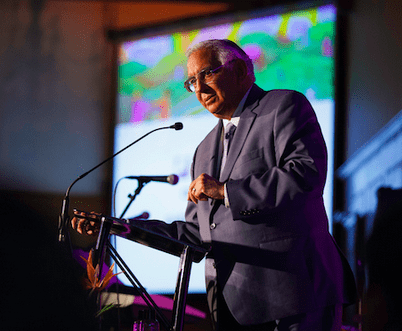 Some churches talk about “God” and the “Father” and one is led to think “God” and the “Father” are the same. (They’re not.) Other churches talk about “God” and “Jesus,” sometimes far more about Jesus than God, and one is led to think either that God and Jesus are two entirely separate beings or that Jesus is all we need, and one wonders if the deity of Christ even matters. We can perhaps agree that the majority of churches talk about, now to use theological categories, Father and Son but silence God the Spirit.
Some churches talk about “God” and the “Father” and one is led to think “God” and the “Father” are the same. (They’re not.) Other churches talk about “God” and “Jesus,” sometimes far more about Jesus than God, and one is led to think either that God and Jesus are two entirely separate beings or that Jesus is all we need, and one wonders if the deity of Christ even matters. We can perhaps agree that the majority of churches talk about, now to use theological categories, Father and Son but silence God the Spirit.
Why do you think the Spirit is the “forgotten” God or the most neglected person of the Trinity?
Good example: We celebrate our hearts out for Christmas (Father sends the Son) and Holy Week (Father sends the Son), but we ignore or skip or barely mention Pentecost (God the Spirit). Unless we are charismatics, and then the Spirit gets plenty of attention (sometimes too much attention). Or unless we know the history of church art (as in this art from John the Baptist Church at the Jordan River). Ronald Heine, in his exceptional introduction to classical Christian orthodoxy, Classical Christian Doctrine: Introducing the Essentials of the Ancient Faith, has a chapter on the what orthodoxy came to believe about the Spirit.
Significant point: most churches affirm orthodoxy, or the Trinity, in all the right terms. Very few churches or pastors routinely develop the significance of each major element in Christian orthodoxy. It is as good, if I may be so bold, as not believing Christian orthodoxy. What then do such churches believe? That the Bible is God’s Word. For many bibliocentrism is the Christian faith. Now to Heine’s sketch:
1. The doctrine of the Holy Spirit did not come to a firm resolution until the end of the 4th Century, thus at Constantinople in 381 AD. In part because Father and Son were more debated and took all the church’s energy; in part because the Holy Spirit was quietly assumed but not articulated.
2. The NT shows a rich, varied but full emphasis on the Holy Spirit. If you grab a concordance (and I use Accordance) and find references to the Spirit in the NT you might be surprised how “Pneuma-centric” the NT is.
3. Irenaeus developed the “economic” side of the Spirit. [My vote for the word “economic” being one of the easiest-to-misunderstand terms in Christian theology; the word refers to “functions” in the plan of God over time in history.] That is, for him the Spirit and the Son were the “two hands of God” (Father) in that each was designated functions that complemented one another. Wisdom and Spirit are the same; Logos and Son are the same.
4. Tertullian and the Cappadocians got into the relation of the Father and the Son to the Spirit. Orthodoxy concluded that the Spirit proceeded (not begotten as the Son, not unbegotten as the Father) from the Father and the Son (though Orthodoxy did not affirm the filioque clause “and the Son” so the Spirit proceeded from the Father alone). Three as one yet three, as a fruit comes from the tree comes from the roots.











